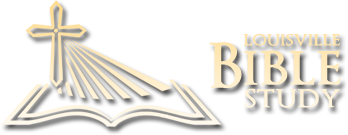In this study, we will explore the mysteries of the Trinitarian God of the Bible (The Father, Son and the Holy Spirit). We will discover how the Old & New Testament come together in a seamless flow that is God's divine & eternal Word, discover the purposes of the divine Covenants, the Law or Moses and finally, the focal point of the Bible...the cross of Jesus Christ. Please join us in this 16 week Bible Study and open your mind to the God of the Bible.
Introduction: Do you know God of the Bible?
About the Epistle or Letter to the Hebrews
Date - it is a widely accepted notion that this Epistle was written before 60 AD. There are two primary factors that drive this notion, which are:
A) The author is very familiar with the ordinances, laws and practices of the Jewish Temple in Jerusalem and leaves no doubt as to whether he possesses this knowledge, nor does he leave any doubt about the fact that the people he is writing the epistle to have some of the same knowledge.
This is significant, because the Temple was destroyed in 70 AD by the Romans and the author makes no reference to this event taking place and writes his Epistle in the present tense when addressing the Temple Practices.
B) There is no mention in the Epistle of the most prominent of the Apostles being killed (e.g. Paul, Peter, Matthew, etc), as does Revelation and therefore, it stands to reason that this had not yet taken place either. Peter and Paul are widely believed to have been murdered by the Roman Emperor somewhere around 63-66 AD.
Audience - the specific audience are Jewish Converts to Christianity, either in Rome or throughout the Roman Empire. Since the Epistle was written to one specific gathering of these converts, it would have most likely been a gathering of significant size and importance.
An epistle of this size and theological depth was a monumental undertaking in the first century, and therefore the author must have felt compelled that the effort was well worth it. Regardless of the specific location of Jewish Converts, it is clear that the author is addressing traditional Jewish believers who had accepted the idea that Jesus was the long awaited Messiah of the Jewish people.
Some of these had accepted it faithfully, deeply and spiritually, and others merely had accepted it based on the notion that it made some sense and were not yet well rooted in their faith (see Matthew 13:1-23 for an example of this).
We know that this was the make up of the audience to which the author is addressing because:
A) The Epistle is to the "Hebrews" or "Israelites".
B) The author goes through great pains to explain in detail what makes Jesus the promised Messiah and absolutely divine.
C) The author uses the term "we" when referencing prior things God had done for the Jewish people (e.g. temple, kings, prophets, laws, etc).
D) The author goes into great depth in explaining why angels are subject to Christ, which addressed the deep admiration of angels as first hand representatives of God, as this was a deep seated Jewish belief.
E) Lastly, the tone of the letter seems to indicate that the author was addressing this audience of believers about falling away and losing their faith, as it contains several warnings.
He references Old Testament examples all throughout the epistle as reminders, which a Jewish audience would have been very familiar with.
This has led some to believe that the audience of Christians may have been undergoing great persecution for their faith, which was certainly a major problem for the early Christian church. In addition, it appears that some of this specific group of Jewish converts were seriously considering abandoning their faith in Christ, and returning to ritualistic Judaism.
Author - the specific author is not known, even though for many years it was assumed to be the Apostle Paul. Further research of the text indicated that it is highly unlikely since the writing style was different and he does not use his name, which Paul had done in every other epistle he had written.
Clearly the author was very familiar with the Jewish law, the ordinances of the Temple, the practices and procedures of the Levitical priesthood and the Old Testament and therefore, it is thought that the writer may have been a converted Jewish Pharisee.
The author also seems to have been a person of high standing and authority to the church of Jewish Christians he addresses, as speaks as a person of authority. This also indicates that the writer is well known, connected and important.
Summary:
A) This Epistle was probably written within 25-30 years of the resurrection of Jesus.
B) It was written to Jews who accepted Jesus as the Messiah/Divine at various levels.
C) It was written by a well educated and knowledgeable Jewish Christian.
D) The writer addresses the Jewish audience with warnings about losing their faith.


